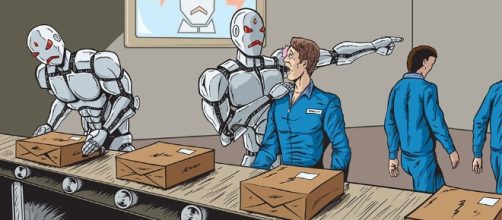Tax services are slowly but surely moving more towards robots than ever before. Turbo Tax, with its talking tax robot, is helping move the industry towards automation, while H&R Block, a well-established force in accounting already has partnered with IBM’s Watson Artificial Intelligence in a move towards robotic taxes.
Machines that can automatically file taxes with the IRS are still a few years away, but commercials from many leading companies point to a growing trend. If robots do end up taking over as accountants, there will still be a need for humans, but in a much smaller role, mostly just to check the computers’ work for any illogical mistakes.
Accounting is ripe for computer takeover
It seems that accounting may very well be on its way to becoming the next profession where the majority of tasks are carried out by computers, and human employees just act as supervisors. Generally, robots are suitable for monotonous tasks that have a limited potential for catastrophe. The more thought a task requires, the more likely the robot is to make mistakes.
This is not such a problem where the potential damage of mistakes made is minimal, so overall it can still be worthwhile to leave the job to computers. Tax returns are based, to a large extent, on the analysis of data, which is an area in which a computer can excel. As well, any mistake made by the computer can be easily remedied by a human supervisor with no actual damage being done.
Consider the fact that more and more, autonomous technology is being integrated into the cars that we drive. As the technology is improved and refined, we become more and more comfortable allowing our cars to drive us around. In an era when computers are in charge of driving, where mistakes can be fatal, it’s only logical that more predictable tasks such as accounting will be left to robots.
In 2015, over 2 million people were employed as bookkeepers, accountants, and auditors. So far, these and other related professions have resisted the rise of automation for a number of reasons. For one, they require a lot of interaction with people. Another factor is that much of the information that needs to be processed comes from the real world, and lacks the structure that is needed for computers to be able to understand it.
Now, however, the perceptive capability of artificial intelligence has vastly improved. Watson, the IBM computer program that H&R Block has partnered with, has been developed as a “cognitive” program and is supposed to be able to think more like a human than computers have ever been able to.
Robots in the workplace
The top 10 professions in the United States currently account for roughly 25 million jobs. As computers get smarter and smarter, more and more of those jobs will be taken over by robots. Humans will ever be totally replaced in the workforce, but as computers become more common in the workplace, human roles will change. So far, in professions where technologies have replaced humans in menial tasks, they have also made those businesses more productive and created new jobs for people with the new opportunities created by those same technologies.

